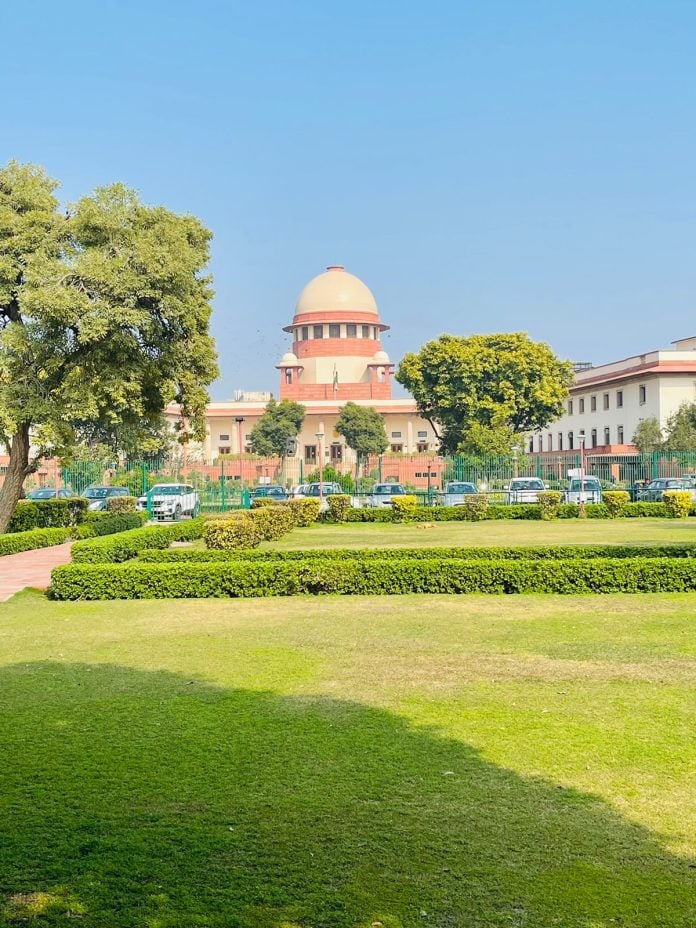The Supreme Court dealt with the scope of provision section 12 of Domestic violence Act, set aside the impugned judgment of High Court, while allowing the appeal of a woman and held that wife can file application under section 12 of the Domestic Violence Act, 2005 even after a period of one year of the alleged acts of domestic violence.
It would be on the magistrate to consider all factual aspects adduced before him, including whether the allegations constitute a continuing wrong, observed by Justice U.U. Lalit and Justice Pamidighantam Sri Narasimha.
“It is thus clear that the High Court wrongly equated filing of an application under Section 12 of the Act to lodging of a complaint or initiation of prosecution. In our considered view, the High Court was in error in observing that the application under Section 12 of the Act ought to have been filed within a period of one year of the alleged acts of domestic violence,” noted the Supreme Court.
The Division Bench of Justice U.U. Lalit and Justice Pamidighantam Sri Narasimha affirmed with the Domestic Inspection report of Protection Officer filed on 02.08.2018 which showed that as far as averments against husband Lakshmi Narayan are concerned, there was a gap of 10 years, wherein nothing was alleged from date of 16.09.2018
The Supreme Court with respect to scope of limitation under section 468 of CrPC determined that cognizance of an offence of the categories specified in Sub Section 2 can not to be taken after the expiry of the period specified in the proviso.
The Apex Court has considered the Constitution Bench judgment in Sarah Mathew v. Institute of Cardio Vascular Diseases etc. and others. On basis of it, two judge bench opined that “Section 468 of the Code mandates that ‘cognizance’ ought to be taken within the specified period from the commission of offence, by invoking the principles of purposive construction, this Court ruled that a complainant should not be put to prejudice, if for reasons beyond the control of the prosecuting agency or the complainant, the cognizance was taken after the period of limitation. It was observed by the Constitution Bench that if the filing of the complaint or initiation of proceedings was within the prescribed period from the date of commission of an offence, the Court would be entitled to take cognizance even after the prescribed period was over.”
The apex court placed reliance upon Adalat Prasad judgment, wherein the law was clearly stipulated that when a Magistrate takes cognizance of an offence and issues process, in which event instead of going back to the Magistrate, the remedy lies in filing petition under Section 482 of the Code.
So, the scope of notice under Section 12 of the Act requires only calling for a response from the respondent as per the statute so that after considering rival submissions, appropriate order can be issued, held by Justice U.U. Lalit and Justice Pamidighantam Sri Narasimha.
The High Court held that application under section 12 of the D.V. Act filed by Kamakhi, wife of Lakshmi Narayan ought to have filed within a period of one year of the alleged acts of domestic violence.
The factual matrix of the case is that the Kamatchifiled application under section 12 of Protection of Women from Dometic Violence Act, 2005, seeking appropriate protection in terms of sections 17 and section 18 of the Act against her husband Lakshmi Narayan and in laws. The Protection Officer filed the report on 21.08.2018, containing allegations against husband and in laws. Kamatchi and her husband got their marriage solmenized on 7.09.2007. it was alleged by Kamatchi that prior to marriage my husband family members came to our home for give invitation and gave mental stress and stated that jewel and dowry are not enough. Further the parents of husband tortured the complainant Kamatchi and did not let her go with her husband.
Thereafter, father-in-law and sister-in-law of the appellant filed petitionunder section 482 of CrPC.seeking quashing of the proceedings. Husband Lakshmi Narayan too filed quashing of proceedings seeking same relief under section 482. The appeals of father-in-law and sister-in-law were allowed and proceedings against them were quashed.
Upon the petition filed by the respondent -husband Lakshmi Narayan, the High court was of the view that application ought to have been filed within one year of the incident and since the complainant qua wife had left the matrimonial home in the year 2008, the application filed by wife was abuse of process of the court.
The contentions of the counsel for wife Kamatchi with regard to limitation were that no cognizance to be taken by the Court more than a year after the commission of offence as per section 468 of CrPc. Secondly, the offence under Section 31 of the Act will be said to have been committed only after the breach of an order passed under Section 12 of the Act.
There is no limitation under the Code or under the provisions of the Act for filing of an application and as such, the High Court erred in finding that the proceedings were barred by limitation, as contended on behalf of wife Kamatchi.
Contentions on behalf of Respondent – Husband were that tabular chart prepared by the Protection Officer in his Report indicates that after 16.09.2008 for almost 10 years nothing was alleged against the respondent or the father-in-law or sister-in-law., and both of them have been living separately for last few years, so the application filed by wife was clearly abuse of process of law.


